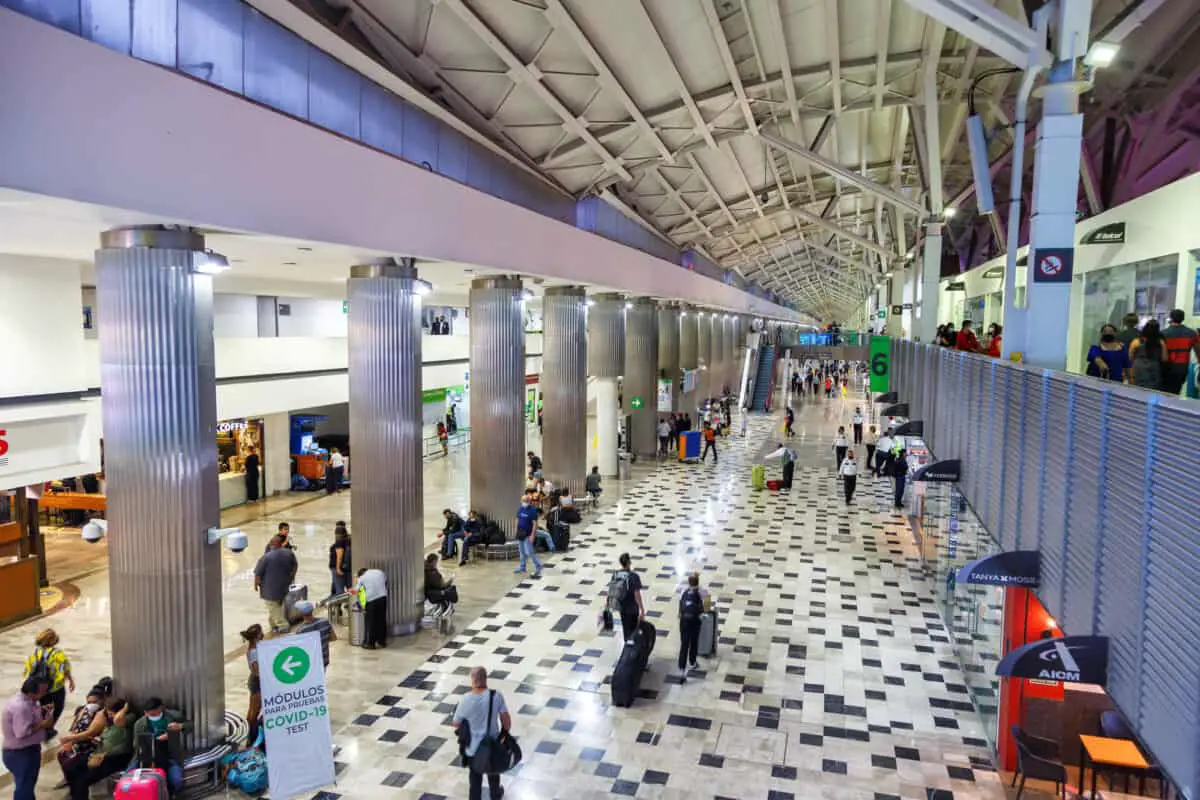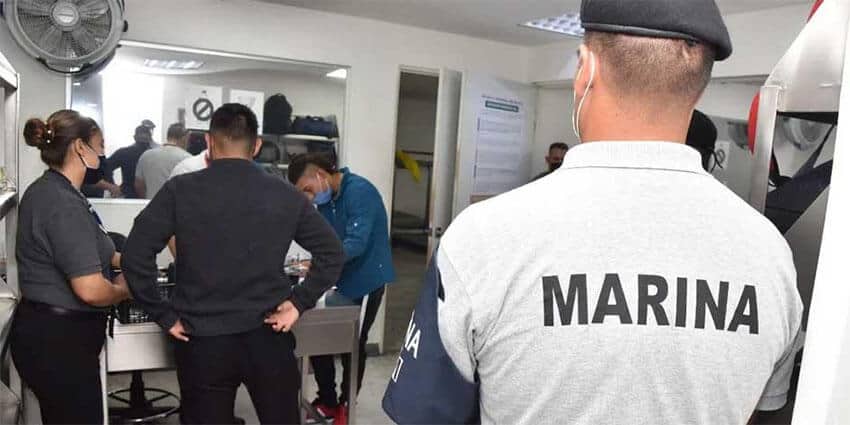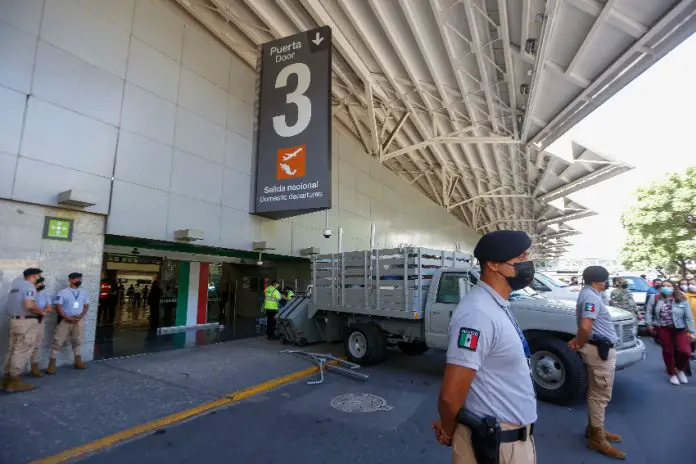The navy will be given complete control of the Mexico City International Airport (AICM), President López Obrador confirmed Monday.
The Ministry of Infrastructure, Communications and Transportation (SICT) is currently responsible for the nation’s busiest airport, although the navy has been in charge of security since early last year.

SICT is currently preparing a decree outlining the details of the handover of control of AICM to the navy. The transfer of control will officially take place 60 days after the publication of the decree in the federal government’s official gazette, which is expected to happen in the coming days.
“The Ministry of the Navy will be in charge of the Mexico City airport,” López Obrador told reporters at his morning press conference.
He noted that the navy is already in charge of security at AICM and asserted that it has a done a “very good job.”
“… There is no theft of suitcases as happened before, and care is taken so that contraband doesn’t come in, so that drugs don’t come in,” López Obrador said.

He asserted that the AICM was controlled by drug traffickers while previous governments were in office and Mexico was a “narco-state.”
López Obrador also announced that the navy will take control of the airports in Ciudad del Carmen, Campeche; Ciudad Obregón, Sonora; and Guaymas, Sonora.
He noted that the Defense Ministry – the army – will have responsibility for the Felipe Ángeles International Airport (AIFA), which opened at a location north of the capital in March 2022; the airport in Tulum, Quintana Roo, that is currently under construction; and the airports in Campeche, Puebla and the Tamaulipas border city of Nuevo Laredo.
AICM general director Carlos Velázquez Tiscareño, a former navy pilot and vice-admiral, said Tuesday that the airport will benefit from navy control in a range of ways.
There will be “greater security, certainty, adherence to rules, order and discipline,” he told reporters at an International Air Transport Association event in Mexico City.
The current government has used the military for a wide range of non-traditional tasks including public security, the construction of major infrastructure projects including AIFA and the administration of ports and customs.
Aviation sector expert Rosario Avilés said that the military should be focused on national security rather than the management of airports.
“The armed forces have a mission to fulfill in security, but their efforts are being distracted by managing infrastructure and building hotels, and that’s not their role,” she said.
With reports from El Financiero, López-Dóriga Digital, El Economista and Reforma
